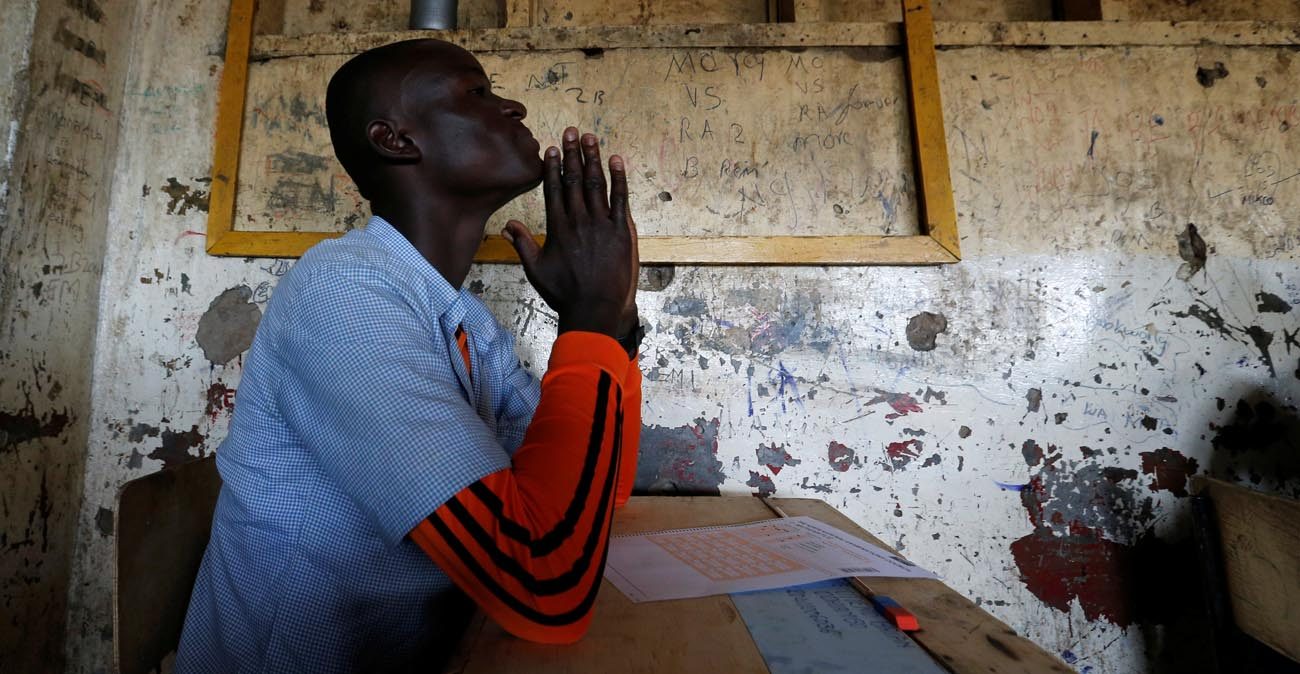NAIROBI, Kenya (CNS) — Kenyan Catholic bishops have announced plans to convene a national dialogue forum in the face of a political crisis, which they say has left the country’s ordinary people on the brink of despair.
The bishops said the forum would assemble all sectors to set an agenda for honest discussions and resolutions on the way forward for the country. Urgent matters to be addressed include difficulties of the elections and reforms, national healing and reconciliation, good governance challenges, transparency, poverty, employment, economic inequality conflict resolution and injustices, among other issues.
[hotblcok]
“This is the forum we believe will offer an opportunity to all Kenyans, especially the key political players, to engage constructively in a bid to chart the way forward for Kenya,” said Bishop Philip Anyolo, chairman of the Kenya Conference of Catholic Bishops, in a statement Nov. 9.
The bishops met in Nakuru ahead of the burial of Eldoret Bishop Cornelius Arap Korir, who died suddenly Oct. 30. Bishop Korir was to be buried in a small chapel inside Sacred Heart Cathedral in Eldoret Nov. 11.
“We know how much he sacrificed and risked his life to maintain peace, harmony and justice,” said Bishop Anyolo.
Dubbed “the peace bishop,” Bishop Korir was trying to help resolve the political crisis. Since the Supreme Court’s Sept. 1 nullification of President Uhuru Kenyatta’s re-election, the country has faced political pressures.
Raila Odinga, the National Super Alliance leader, boycotted a re-vote Oct. 26 and urged street protests and economic boycotts. Although Kenyatta was declared the winner of the October election, the decision again is being challenged in the Supreme Court.
The bishops said everyone is required to promote unity and reconciliation.
“We … will spearhead peace initiatives and invite our brothers from other religious faiths and people of good will to join us,” said Bishop Anyolo.
While applauding the tremendous hope the citizens have shown, the bishops warned of growing inequality, extreme poverty, uncontrolled looting of public resources, political manipulation of citizens and radicalization of politics.
PREVIOUS: Vietnamese diocese begins rebuilding church ruined in ’67 U.S. air raid
NEXT: Stop taking smartphone snapshots during Mass, pope says




Share this story